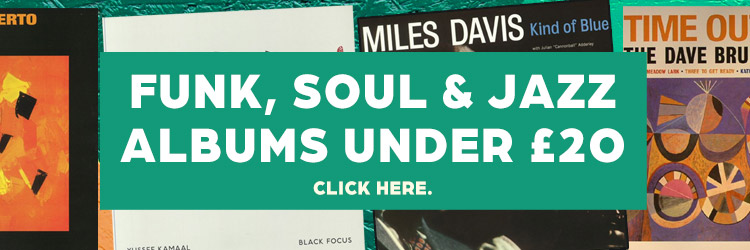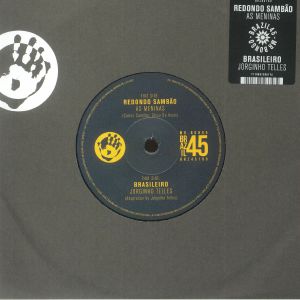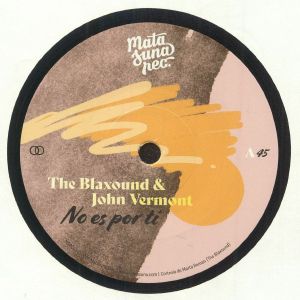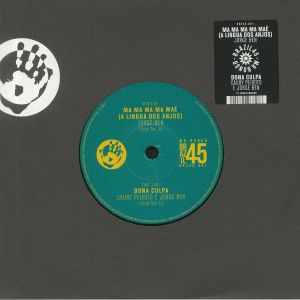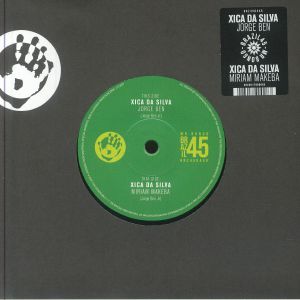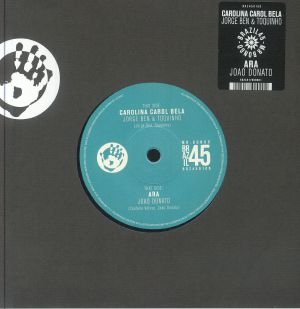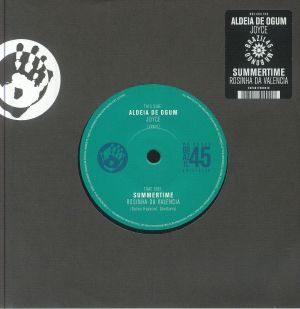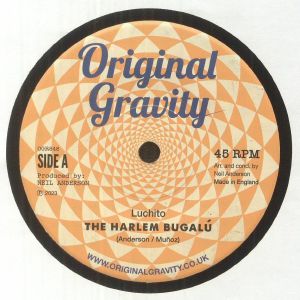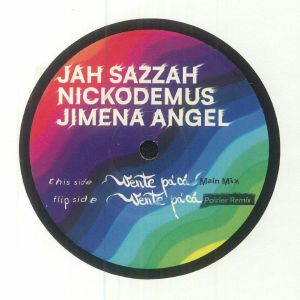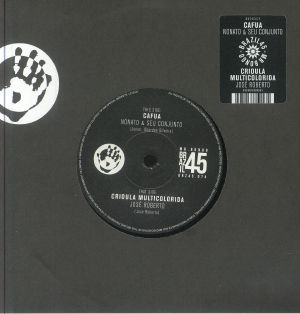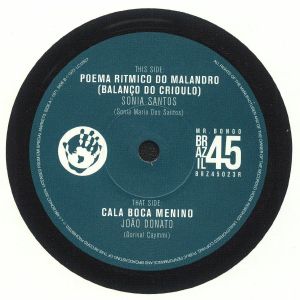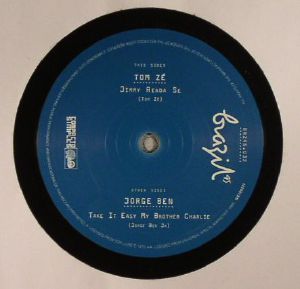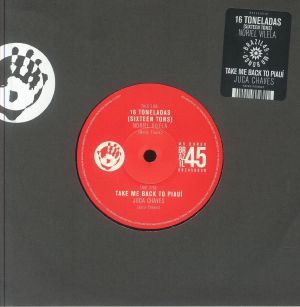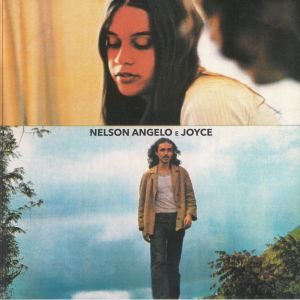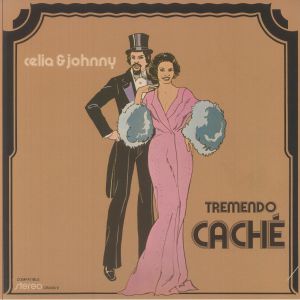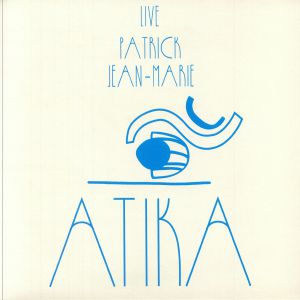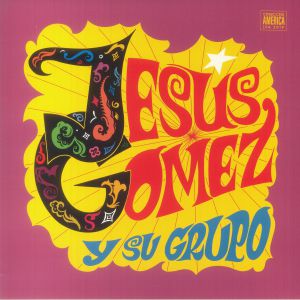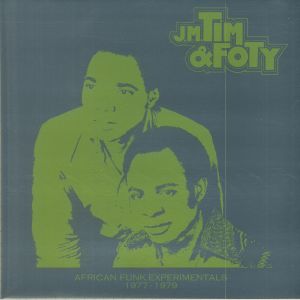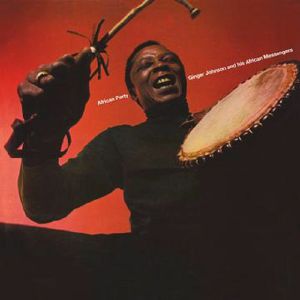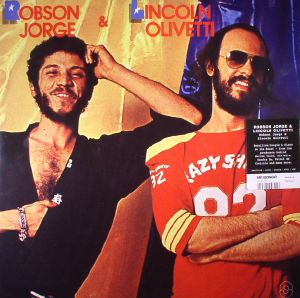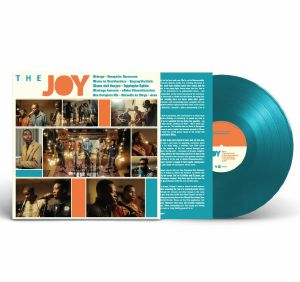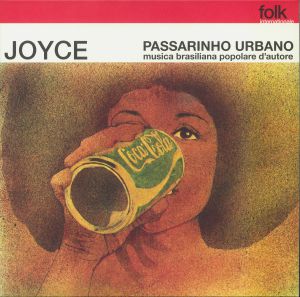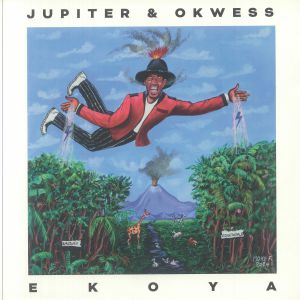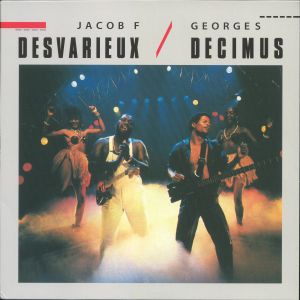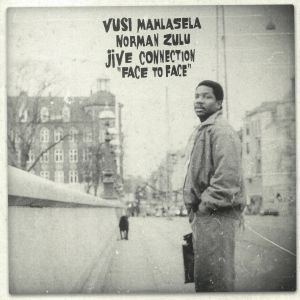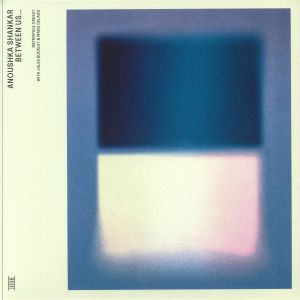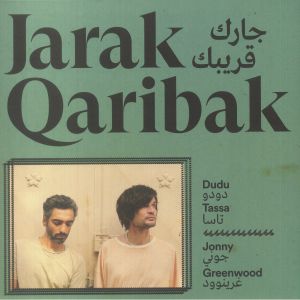Filter
Stock
Type
Featured
Release Title
Price
Tags
Back catalogue: International
Juno's full catalogue of International
Singles
Review: You always know what you are going to get from Mr Bongo's Brazil 45 series and that is pure fire in musical form. This 100th release suggests the label has no intention of slowing down nor is it running low on top source material. This one from As Meninas on the A-side has beautiful female vocal-group arrangements with flutes that soar up top and plenty of ass-shaking samba shuffles down low. It's a tune that oozes soul and charm and was first released back in 1967. It's a super sweet but short song that is backed with 'Brasileiro' on the flip. It's taken from Jorginho Telles' self-titled 1971 album on Copacabana Records and mixes up raw guitar sounds with r&b vibes into something unusual and alluring.
… Read moreGespielt von: Voodoocuts, Juno Recommends International
in stock $12.68
Review: Matasuna Records, based in Berlin, kick off their 2025 with a ladling of fresh soul soma food, this time by Barca's finest one-girl band The Blaxound (Marta Roman), in collaboration with singer John Vermont. Building on irreverent, vintage 60s pop from Spain, whose sound is categorically fiendish to replicate, the two artists have nonetheless managed a close hewing here. 'No Es Por Ti' showcases Vermont's throaty singing, lyrically playing out the eternally relatable breakup trope of "it's not you, it's me." Then 'Qu Ms Te Da?' follows with an affectingly syncopal rhythm, with a tightened snare played only on the 4, heightening the erotic tensity of the scene, driven by shuffling hats alone, whilst the artists' respective cools are kept.
… Read moreGespielt von: Craig Charles Funk And Soul, Voodoocuts
in stock $12.11
Cat: BRZ 45081. Rel: 16 Oct 20
Review: Mr Bongo's excellent Brazil.45 series digs deeper into the legacy of Jorge Ben, one of Brazil's most famous musical exports and an enduring samba king. Opening up is 'Ma Ma Ma Ma Mae (A Lingua Dos Anjos)' which was originally on his 1980 album Alo Alo, Como Vai? It's a modern sound, with disco inflections and big wind sections, but also some trademark Ben playfulness in the lyrics which speak of flying saucers and angels. O the flip, things slow down and get more steamy and sensuous on 'Dona Culpa' from his Cauby! Cauby!' album of the same year. Two sides, two styles, one irrepressible artist.
… Read more in stock $12.68
Xica Da Silva (remastered) (limited 7")
Cat: BRZ 45044R. Rel: 29 Aug 24
Review: This Mr Bongo Brazil 45 reissue features two classic tracks from legendary duo Jorge Ben and Miriam Makeba. Side A presents 'Xica Da Silva,' one of Jorge Ben's most iconic songs from his equally legendary Africa Brazil album which has long been a must-have for any discerning head. This magical MPB track with its laid-back funky samba vibe instantly transports you to the blissful shores of Rio de Janeiro as Ben's vocals tell the story of a historic Brazilian icon. On the flip side, Miriam Makeba delivers a captivating, slowed-down rendition of 'Xica da Silva' which is enriched with strutting guitar, off-beat piano, and hypnotic drums while her powerful voice takes centre stage.
… Read moreGespielt von: Fabietto Delgado (Ankle Release), Voodoocuts
in stock $10.99
Carolina Carol Bela (reissue) (limited 7")
Cat: BRZ 45010R. Rel: 29 Aug 24
Review: Jorge Ben is a legendary figure in Brazilian music, often called the James Brown of Brazil, and is famous for writing the iconic anthem 'Mas Que Nada' as well as innovating within the samba sound. Amongst many other great successes, he collaborated with singer and guitarist Toquinho on the duet 'Carolina, Carol Bela' on the Brazilian label RGE. This song was famously sampled by DJ Marky and XRS for their drum and bass track 'LK' which became a global hit and topped the UK charts. Joao Donato is a renowned Brazilian jazz and bossa nova pianist who worked with icons like Tom Jobim, Astrud Gilberto, and Gilberto Gil and his track 'A Ra' appeared on his classic 1973 album Quem e quem, which has since been recognised by Rolling Stone as one of the 100 greatest albums of all time. Both of them are real Latin gems.
… Read moreGespielt von: Juno Recommends International
in stock $10.99
Aldeia De Ogum (remastered) (limited 7")
Cat: BRZ 45013R. Rel: 29 Aug 24
Review: Joyce Moreno, a legendary Rio-born artist, is celebrated for her exceptional voice, musicianship, and songwriting. With over 30 albums in a career spanning more than 50 years, she continues to enchant audiences worldwide. Her iconic track 'Aldeia de Ogum,' known for its vibrant jazzy arrangement and rich samba rhythms, became a staple in London's Acid Jazz scene, championed by DJs Patrick Forge and Gilles Peterson. Originally featured on her 1980 LP Feminina and our 1997 Essential Joyce compilation, this beloved song first appeared on 7" through the Brazil 45 series. Rosinha de Valenca, another Rio native, was a revered composer, arranger, and guitarist who collaborated with giants like Baden Powell and Sergio Mendes. Her instrumental rendition of Gershwin's 'Summertime,' from her 1975 LP Um Violao Em Primeiro Plano, shows off her exquisite guitar skills accompanied by lush strings, delivering an emotionally stirring performance. A lot of great history on one 7".
… Read moreGespielt von: Juno Recommends International
in stock $10.99
Review: More heat here from Original Gravity with 'The Harlem Bugalu' from Luchito and Joaquin Marquez. This is a 7" that soon transports you to boogaloo paradise with its feverish Latin grocers and non-stop drum funk. The A-side is laden with spoken words, zippy percussive sounds and mad bongo bubbles with lashing of horn-led exuberance. Flip it over and you will find the slightly darker and more menacing energy of Joaquin Marque's 'Mala Mania'. Get your shake on and drop this one this summer for swift dancefloor explosions.
… Read moreGespielt von: Craig Charles Funk And Soul, Juno Recommends International
in stock $12.68
Vente Pa Ca (7")
Cat: WW 217. Rel: 12 Oct 23
Review: This is a global single with a great story that starts with an afro-funk groove made by Italian Jah Sazzah. He wanted a vocal for it so turned to Nickodemus who handed his own touches and then sent it Grammy-nominated Colombian vocalist Jimena Angel. The result is a vibrant Afro tune with vivid melodies. Remixer Poirier is a legend in Latin music circles. The Montreal man has formerly been associated with Ninja Tune and is synonymous with lots of classy remixes and fresh takes on a modern Afro-Caribbean sound. This is another one that reworks the ring into a more bouncy and infectious sound with gorgeous vocals and a clean arrangement that allows the drums and perc to shine.
… Read moreGespielt von: Jayl Funk
in stock $14.09
Cafua (remastered) (7")
Cat: BRZ 45074R. Rel: 27 Sep 24
Review: Mr. Bongo credit themselves with taking a selection of the most in-demand and asked-for titles in their Brazil '45s catalogue, lending them all a loving repress in due homage to the music of the nation. This time, they focus their energies on the synergy shared between the late composer and record producer Nonato Buzar and drummer Jose Roberto, both of whose contributions to the MPB canon are unmissable, referent sonic studs. Nonato's 'Cafua' is a powerful eurythmic, its strigiform vocals proving a suitable narcotic to offset to the track's otherwise restless horns and post-bossa-nova drum clacks, which hit like quick patterings against soft cartilage. Roberto's 'Crioula Multicolorida' is a more vintage recording, erstwhile bringing rare "samba rock" grooviness and reflective, call and response lyricisms to a redolent rhythm.
… Read moreGespielt von: Juno Recommends Funky House, Juno Recommends Funk
in stock $10.99
Cat: BRZ 45023R. Rel: 24 Jan 25
Review: This 7" delivers two rare treasures from the early 70s Latin underground, showcasing a blend of innovation and groove. Side-1 is an electrifying gem from 1971, driven by its creative vocal delivery and rhythmic Latin funk foundation. The track's raw energy and unique arrangement make it an irresistible dancefloor favorite. On Side-2, a 1973 classic merges Brazilian jazz with funk and soul, delivering a sophisticated yet infectious groove. Its lush instrumentation and smooth melodies create a heady, distinctive atmosphere, reflecting the musical experimentation of the era. Two tracks that encapsulate the spirit of a dynamic scene.
… Read more in stock $12.39
NO (7")
Cat: NNVINYL 005. Rel: 15 Nov 24
Review: Belgian-Bolivian musician Susobrino delivers his debut EP 'NO', titling itself after a primal negation, and forged in the interplay of traditional South American percussion music with electronica. As if to curb his habit of collecting an (perhaps over-) abundance of percussion instruments, 'NO' hears Susobrino set a stark limit for both himself and the listener, bringing just three curt tracks to wax following a live-changing tour of his ancestral South America. Honorific of the traditions of SA percussive music, Susobrino nonetheless intones: "Mixing acoustic instruments and field recordings with electronics with the music software Ableton was my cocktail from the beginning". The result is a widescreen demo of ascendant percy jawns, equally suited for the curio club-goer as it is for the Bolivian folklorico fanatic.
… Read moreGespielt von: Juno Recommends International
in stock $15.50
Review: Mr Bongo's Brazil 45s series gets its rock on with two hairy grooves, both of which have enjoyed the sampler's crafty knives over the years. First up, Tom Ze's "Jimmy Renda-se" rolls with an oily sleazy groove that's peppered by a playful lyrical rhythm that transcends language barriers. Ben's "Take It Easy My Brother Charlie" joins the dots between Samba and very light Rock with all the signatures that made Mr Ben the legend he remains to this day with big vocal harmonies and infectious textures of Brazilian percussion.
… Read moreGespielt von: Mukatsuku Records Chart, Smoove, Hubbz, Afro Beat Foundation, JKriv (Razor-N-Tape), I Love 45's!
in stock $12.68
Cat: BRZ 4503R. Rel: 20 Nov 24
Review: Mr. Bongo's Brazil.45 continues with a repress of two highly sought-after tracks from earlier in the series, this time from Noriel Vilela and Juca Chaves. On the A-side, Vilela's 1971 cover of Tennessee Ernie Ford's '16 Tons' transforms the classic American folk song into a smooth, samba-infused groove. Vilela's version reimagines the track which was originally released on Copacabana Records, with a deep rhythmic flair. On the B-side, Juca Chaves' 'Take Me Back To Piaui' from 1970 featured on his 1972 album Muito Vivo delivers lush orchestration, velvety vocals and vibrant cuica tones. It's pure escapist bliss.
… Read more in stock $10.99
Alben
Review: This collaboration between Nelson Angelo and Joyce on Nelson Angelo e Joyce brings a radiant blend of Brazilian folk and jazz-inflected arrangements, where lush acoustic guitars meet cool, swirling percussion. The pair's harmonies are effortlessly seamless, carrying a sense of intimacy and warmth throughout. While the sound may occasionally veer into serene, almost pastoral territory, there's an undercurrent of depth, especially in the more syncopated rhythms and spontaneous melodic shifts.
… Read more in stock $20.57
Tremendo Cache (50th Anniversary Edition) (180 gram vinyl LP)
Cat: CRF 1683041. Rel: 31 Mar 25
Review: A tremendous cache of tunes by Celia Cruz and Johnny Pacheco, two art-nouveau dandies of the Latin salsa and gurachas sound, the latter of which has remained the dominant form of music in Cuba since at least the late 18th Century. The 20th, of course, heard a dramatic reworking of the sound into big band swing, as it would soon be taken up by many a Latin American cojunto (small band/ensemble). Cruz broke into international stardom from 1950, but would not venture beyond the gulf to with Dominican counterpart Johnny Pacheco until 1974, and Tremendo Cache was not their first collaboration either. With right-foot-forward steps and picaresque rufflings, the pair deliver a latently sombre record, despite the snappy energy, with some of the remastered cuts including 'Don't Talk To Me About Love' and 'I Can't Stand It Any More' laying among the more acerbic of titles!
… Read more in stock $31.83
Celia & Johnny (remastered) (gatefold 180 gram vinyl LP)
Cat: 725046 6. Rel: 10 Oct 24
Review: Celia & Johnny, released in 1974 on Fania Records, marked a pivotal moment for both Celia Cruz and salsa music. By this point, Cruz was already a celebrated star in Cuba, but her attempts to break into the U.S. salsa scene had struggled. Enter Johnny Pacheco, co-founder of Fania Records and leader of the Fania All-Stars. A longtime admirer of Celia's powerful contralto voice, Pacheco believed her potential had been stifled by overly complex arrangements. He was confident that pairing her voice with his more streamlined Afro-Caribbean rhythms would catapult her into salsa stardomiand he was right. The album produced two defining hits, 'Toro Mata' and 'Quimbara', both of which immediately resonated with dancers and salsa enthusiasts. The infectious grooves provided by Pacheco's band allowed Celia's voice to shine, and the success of these tracks solidified her status as the Queen of Salsa. Celia & Johnny is now seen as a cornerstone of salsa's golden age. The record's blend of traditional Cuban styles like mambo, guaracha, and guaguanco with the modern salsa sound brought the genre to a wider audience, particularly younger U.S.-born Latinos. Deep cuts like 'Tengo El Idde', 'Lo Tuyo Es Mental', and 'Canto a La Habana' further showcase Cruz's versatility, with moving performances that tap into spiritual, comedic and patriotic themes. Ultimately, Celia & Johnny remains a landmark collaboration that helped define the global appeal of salsa.
… Read moreGespielt von: Juno Recommends International
in stock $36.90
Atika Live 1982 (limited LP + insert in screen-printed sleeve)
Cat: DS 1. Rel: 27 Feb 25
Review: Symbole has secured the rights to the first-ever release of Patrick Jean-Marie's seminal Atika - LIVE! This rare recording - which has been made from the original master tape - was captured in mono during a 1982 TV live show on RFO in Guadeloupe. The fragile tape's survival is a real miracle. Recorded in non-studio conditions, the spontaneous and improvised sequences create an atmosphere that shows up the subtle dialogues between the musicians. The Jean-Marie brothers shine at their best here as they effortlessly cross musical dimensions. Raw but intimate, this is a special piece of musical history.
… Read more in stock $42.25
Cat: ELPALMASLP 33. Rel: 07 Nov 23
Review: Some music just instantly and inescapably transports you to another world and that is 100% the case with Jesus Gomez y su Grupo's self titled long player. It has been impossible to find over the years and is a true musical treasure that blazed a trail few have been able to follow. Jesus Gomez was only 17 when this was recorded and it already shows a great mastery of many different Latin musical styles - it is an energetic rhythmic declaration coloured by Guaguanco, Bolero, Descarga, Rumba, and even Guaracha as well as salsa. The intertwining rhythms and heartfelt vocals are perfectly layered up to beautiful effect here by the young Venezuelan talent.
… Read more in stock $32.67
Review: Between the mid 1970s and the late 1980s, Cameroonian duo J.M Tim and Foty recorded a string of killer Afro-funk albums. This superb compilation from Africa Seven shines a light on the best of the duo's early work, with each of the ten tracks recorded between 1977 and '79. There's much to set the pulse racing throughout, from the crunchy Clavinets, punchy horns and heavy grooves of opener "Douala By Night" and the rubbery disco-funk of "More and More", to the swirling, celebratory vocals, sun-kissed guitars and dazzling analogue synth solos of "Ale". Elsewhere, check the Bee Gees-in-Cameroon flex of "Funky Boogie Love" and "I Love Youande", a breezy affair with a touch of country-funk swing and an a sublime bass guitar riff.
… Read more in stock $10.13
African Party (Deluxe Edition) (gatefold 2xLP)
Cat: BBE 771ALP. Rel: 30 Dec 24
Review: This is a historically significant album now gaining deserved recognition with this anniversary reissue. Born George Folurunsho Johnson in Nigeria in 1916, Ginger's Yoruba heritage shaped his music and by the late 1940s, he had moved to London and was busy collaborating with British jazz icons like Ronnie Scott, Phil Seaman and Kenny Graham's Afro-Cubists. A pioneering figure, Ginger recorded some of Britain's first African music releases and mentored a young Fela Kuti and became a cornerstone of the African and West Indian musical community. By the 1960s, Ginger's mastery of Afro-Cuban percussion cemented his legacy across genres and performances, including the Notting Hill Carnival, and this album shows why he was such a singular artist.
… Read moreGespielt von: Craig Charles Funk And Soul
in stock $34.09
Robson Jorge & Lincoln Olivetti (LP + insert)
Cat: MRBLP 148. Rel: 31 Jul 17
Review: Insane boogie fire from Rio circa 82; both Robson Jorge and Lincoln Olivetti were already decorated before they joined forces, but this one took both of their reputations and amplified them beyond expectation. Their one and only album, it's loaded with soul and funk from every corner of Brazil's sexy city and brought together with beautiful attention to detail; the gradual vocal breakdowns, rude synths and lavish instrumental sections, key cuts such as the Wonder-level "Aleluia", the jazz slides and glides of "Pret-A-Porter" and the sexy 80s electro boogie "Squash" will still completely flip any party 35 years later. Stunning.
… Read moreGespielt von: Charles Maurice, Mukatsuku Records Chart, JimmyTheTwin, Phillie P (Ice City Rec), Manu Archeo, Shawn Ryan (Universal Cave), Yoshi Okino (Kyoto Jazz Massive), Frank Booker, Afro Beat Foundation, Captain Planet (Bastard Jazz), Red Greg, Admin, Charlie bucket/ dancing in space, Juno Recommends International, Cultures Of Soul US
… Read more in stock $22.82
Review: The Joy, a vibrant a cappella group from the South African township of Hammarsdale, captured the hearts of global audiences with their soul-stirring harmonies and profound musical heritage. Growing up in a region where Zulu isicathamiya music thrives, made famous by legends like Ladysmith Black Mambazo, The Joy tap into a rich tradition and their music, characterised by powerful, lion-like mbube vocalisations, reaching beyond mere performance to touch something deeply ancestral, especially evident when lead vocalist Duzie unleashes his extraordinary voice. This group's journey from local choir practices to international acclaim is nothing short of miraculous, marked by a significant win in a regional singing contest and recognition from stars like Alicia Keys and Jennifer Hudson. Their music, produced by Two Inch Punch, blends traditional influences with contemporary appeal, achieving millions of streams and resonating uniquely in today's diverse musical landscape.
… Read moreGespielt von: Juno Recommends International
in stock $19.15
Review: Passarinho Urbano (Urban Bird) is the album-length result of a chance encounter between singer and musician Joyce Moreno and producer Sergio Bardotti in Rome, Italy. Thoroughly relaxed and recharged after a long break in the city, Moreno's rejuvenated state of mind lent immediately to a spur-of-the-moment reimagining of some of her favourite classical Brazilian MPB and bossa nova standards, some of whose original composers were leading lights of the underground cultural resistance during the country's military dictatorship by the Brazilian Army during the 1960s. With a soft-spoken, intimate vocal intonation by Moreno, and a composition centring on slow-building, rhythmically deft call-and-response cantos, this album deserves its longstanding status as a secret masterpiece, a status which'll surely be renewed once more by this first-time-worldwide reissue by Week-End Records.
… Read more in stock $40.28
Review: Ekoya is the fourth album from Jupiter & Okwess and it marks a new chapter in their sound as they embrace Congolese funk, rock, Afropop and Latin influences. This record was conceived during a South American tour and recorded in Mexico so reflects a cross-cultural fusion that's deeply rooted in African history and features collaborations with artists like Flavia Coelho and Mare Advertencia. Along the way, the music tackles themes of change, resilience and the global challenges we face so tracks like 'Selele' and 'Orgillo' fuse political commentary with big rhythms. Through a great mix of languages, rich instrumentation and powerful messages, Ekoya is a wonderfully worldly celebration.
… Read moreGespielt von: Ex-Friendly (Truth & Lies Music), Juno Recommends International
in stock $27.03
Review: Zouk pioneers Jacob Desvarieux, Georges, and Pierre-Edouard Decimus worked together as Kassav and to mark their 40th anniversary comes this vinyl pressing of Yelele. The group was founded in 1979 and went on to leave an indelible mark on global music. From their roots in Guadeloupe and Martinique, Kassav' popularised zouk worldwide and earned numerous gold and platinum records. Despite the tragic loss of Desvarieux to Covid-19 in 2021, Kassav's legacy thrives through their ongoing live concerts. Their music is infused with Caribbean rhythms like Guadeloupe's gwo-ka and Martinique's ti-bwa so transcends cultural boundaries and hooks in dancers everywhere from Japan to Russia. Four decades later, Kassav's timeless hits still resonate as this album reminds us.
… Read more in stock $24.23
Face To Face (LP + insert)
Cat: STRUT 211LP. Rel: 26 Jan 23
Review: Acclaimed South African folk singer Vusi Mahlasela joined forces with singer songwriter Norman Zulu as well as the superb Swedish jazz and soul collective Jive Connection for this album back in 2002. It was thought to be a lost recording until it recently showed up and now gets fully revived by Strut. There are strong political links between these countries which no doubt adds weight to this musical link up. It is a great exchange of cultures from parables to laments on child abuse to tunes that fuse reggae, jazz and post-punk with township styles.
… Read moreGespielt von: AfroBase (Radio Chart)
in stock $19.15
Between Us (LP)
Cat: 405053 8824018. Rel: 01 Jan 90
Review: Anoushka Shankar, the renowned British-Indian-American sitar player, producer, and composer, shares her first live album since 2001's Live At Carnegie Hall. Between Us... marks her debut with the German label Leiter, featuring material from four solo albums and one previously unreleased track. This album has Shankar's collaborative spirit in full glory, beginning from her early performances alongside her father, Ravi Shankar. Between Us... features Shankar's regular collaborator, Manu Delago, a master of the Hang (hand pan), and Holland's Metropole Orkest, directed by the esteemed conductor and arranger Jules Buckley. Recorded in 2018 during a short series of shows in the Netherlands, the album captures the vibrant energy and synergy of these performances. Shankar fondly recalls the concerts, highlighting the unique experience of performing with an orchestra where the audience's energy was palpable. This dynamic interaction brought a fresh and fun element to the orchestral setting. The album offers listeners a glimpse into a harmonious and exhilarating musical world.
… Read moreGespielt von: Juno Recommends International
in stock $35.78
Jarak Qaribak (180 gram vinyl LP + insert)
Cat: 405053 8883718. Rel: 08 Jun 23
Review: When members of mega-bands work with relatively obscurer artists, we're always intrigued. But a potential trapping factor is in thinking Jarak Qaribak, for example, is more of a Jonny Greenwood album than a Dudu Tassa one, when in fact the exact opposite is the case. Tassa, an Israeli singer-guitarist who fuses Middle Eastern stylings with contemporary rock, lends a challenging structural terrain to the Radiohead member's electric guitar licks, with the former's Arabic and Hebrew lyrics moving atmospherically against them. A star cast of fellow Israeli artists accompany the pair, as serene vocal beat-driven movements plod and swell away in an appealingly nu-proggy fashion.
… Read moreGespielt von: Juno Recommends International
in stock $27.33

 USD
USD





